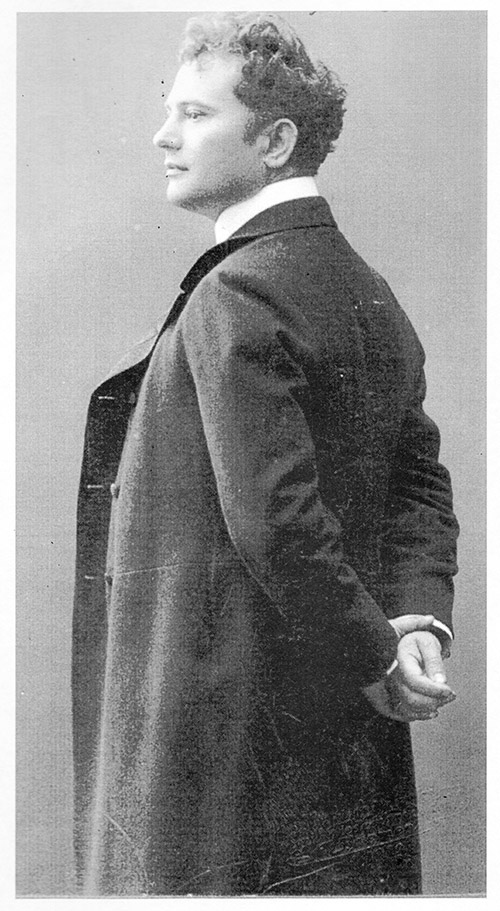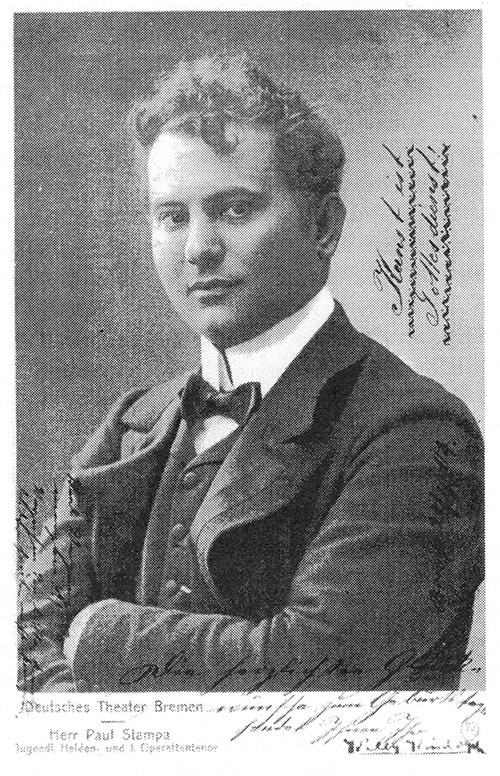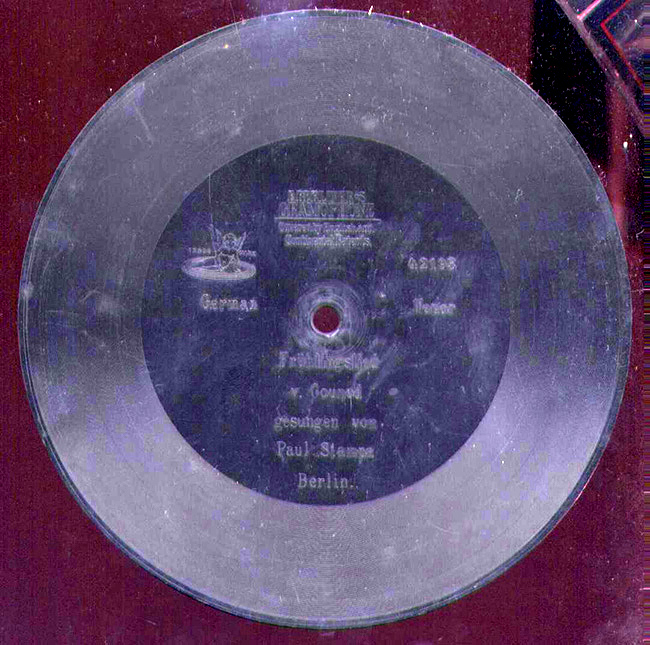Stampa's early career is less than well-documented; anyway, he started it in Stettin in the 1895/96 season.
In 1901, he and his first wife, the singer and actor Dora Dorsay, took part in something entirely new for Germany: the
Überbrettl, literally the super-cabaret – a short-lived troupe founded by Ernst von Wolzogen, with its own
theater in Berlin and an extensive touring activity, presenting revues halfway between Music Hall and satirical sketches, but
with artists of the very first rank: Arnold Schönberg, Oscar Straus, Arthur Schnitzler and Christian Morgenstern were
among the contributors. Stampa and his wife were particularly successful when the Überbrettl troupe appeared at the
Tivoli-Theater in Bremen (May 1902).
They spent the 1902/03 season at the Carl-Schultze-Theater in Hamburg, singing operetta; in summer 1903, they were back to the
Tivoli-Theater in Bremen for a program with song composed by Paul Stampa, and were once more so successful that they were hired
for the new season at that theater (now renamed Deutsches Theater).
Stampa spent the 1904/05 season in Brno/Brünn as an opera singer, the following season with several guest appearances, and
the years from 1906 to 1908 in Wrocław/Breslau (again with his wife), at the Schauspielhaus, which means: in operetta.
1908–10, they sang at the Würzburg Stadttheater (opera and operetta), where Stampa was considered a Wagner tenor.
In 1910 or 1911, Stampa and Dorsay separated (their son Robert Dorsay was to become a well-known comedian and actor, and was
executed in October 1943 as an opponent to the Nazi regime). Stampa spent the 1911/12 season in Amsterdam and Rotterdam, singing
operetta, and the next two years at the Wilhelm-Theater in Magdeburg. In 1915, he was back to the town where he was more
successful than anywhere else: to Bremen. Having returned for frequent guest appearances over the past years, he became now a
member of the Stadttheater for one season as an operetta tenor. From 1916, he sang opera and operetta in Halle an der Saale until
leaving the stage in 1920. For the 1921/22 season, he was manager and stage director of another Halle theater (the
Operettentheater) and the Reichshallentheater in Erfurt.
Then he changed the profession, and worked in the corporate sector in Düsseldorf. In 1924, he moved to his native Berlin,
where he died the following year.
Reference and picture source: Stimmen, die um die Welt gingen, no. 70, December 2001


